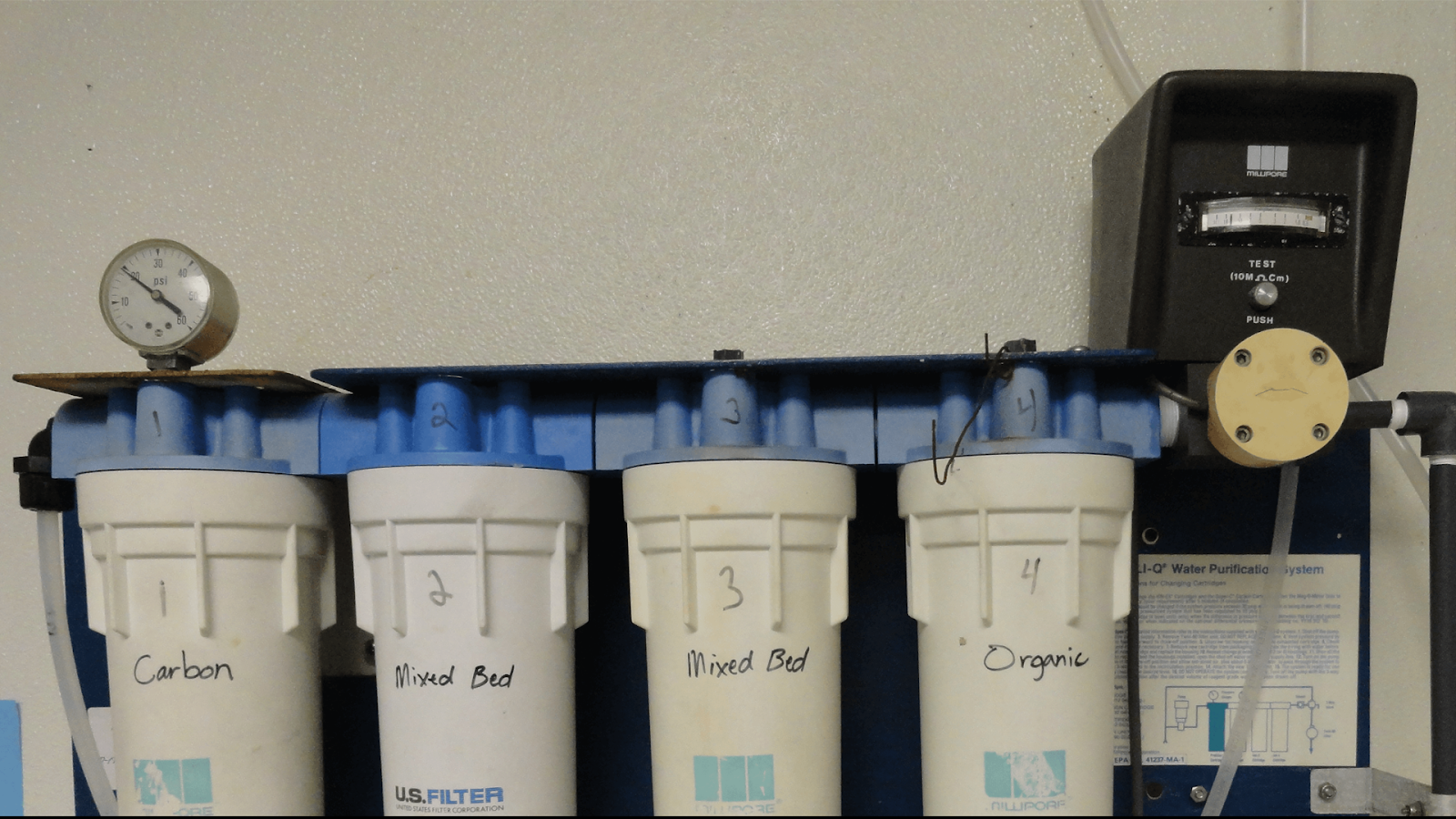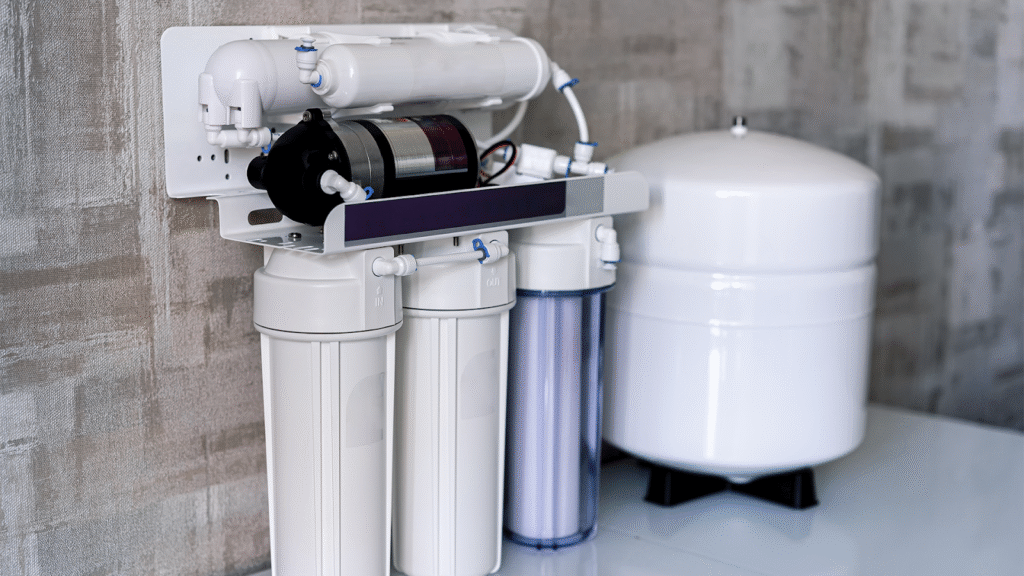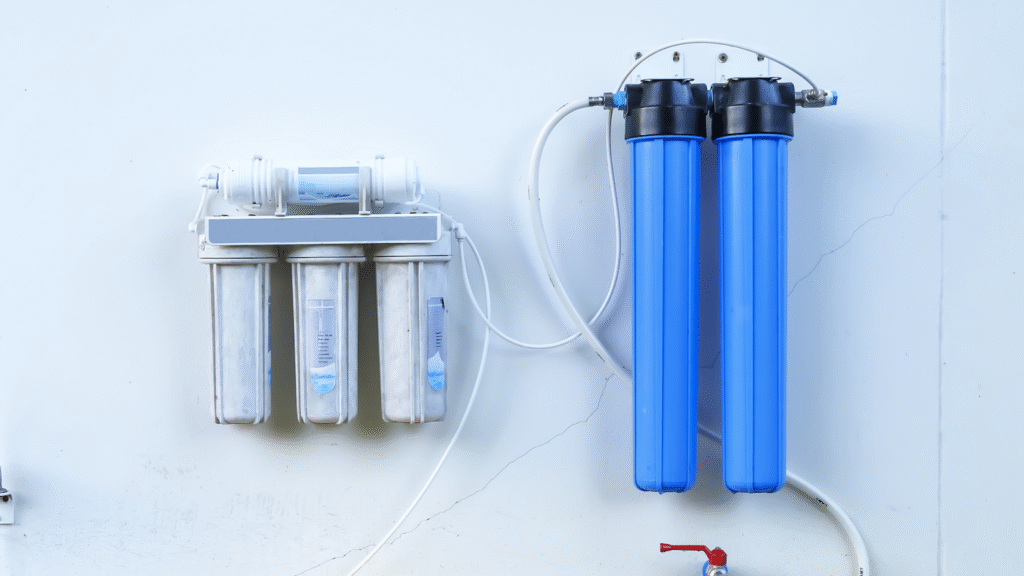A Promising Shortcut or Marketing Myth?
Walk into any big-box store or browse online and you’ll likely see magnetic water softeners being advertised as a quick, salt-free, eco-friendly fix for hard water problems. Especially in a city like Edmonton—where water hardness averages 165 mg/L of calcium carbonate—these devices may sound like an attractive alternative to traditional systems.
But do magnetic water softeners actually work? And more importantly, do they work in Edmonton’s specific water conditions?
This article cuts through the marketing to explore what magnetic water softeners are, how they’re claimed to work, and whether they stand up to scrutiny when used in real homes throughout Edmonton.
Table of Contents
ToggleEdmonton’s Hard Water Reality
Edmonton sources its water from the North Saskatchewan River, which flows through mineral-rich terrain before reaching municipal treatment. This naturally results in high hardness levels. EPCOR data confirms that local water contains an average of:
- 165 mg/L (9.6 GPG) of hardness
- Moderate to low levels of iron and chlorine
These hardness levels cause scale buildup, reduced appliance life, soap inefficiency, and increased energy bills. For a full understanding of Edmonton’s water profile and treatment options, see our Guide to Water Softener Technologies in Edmonton.
What Is a Magnetic Water Softener?
Magnetic water softeners (also known as descalers or conditioners) are devices that clamp around your home’s incoming water pipes. They claim to reduce the effects of hard water without removing the minerals themselves.
How they claim to work:
- Magnets generate an electromagnetic field as water passes through the pipe
- This field allegedly alters the structure of calcium and magnesium ions
- Modified ions form a crystalline structure that is less likely to stick to surfaces
The catch? No minerals are removed. Instead, the idea is to prevent buildup by changing the way minerals behave.
What the Science Says
Scientific research into magnetic water treatment is limited and mixed. Some lab studies show minor reductions in scale formation under specific, controlled conditions. However, many experts—including the Water Quality Association (WQA)—state that evidence is inconclusive or insufficient to recommend these systems as a reliable water softening method.
In 2011, a study published in the journal Water SA concluded:
“Magnetic treatment did not significantly reduce the hardness of the water… Any scale reduction was inconsistent and highly dependent on flow rate and temperature.”
Translation: magnetic softeners may do something, but it’s not predictable, and it’s not true softening.
 Magnetic vs Traditional Softeners: Key Differences
Magnetic vs Traditional Softeners: Key Differences
| Feature | Magnetic Descaler | Salt-Based Softener |
| Removes Minerals | No | Yes |
| Prevents Scale Buildup | Possibly (not guaranteed) | Yes |
| Effectiveness in Hard Water | Unreliable | High |
| Salt-Free & Low Maintenance | Yes | No (needs salt) |
| Energy or Plumbing Changes | None | Often required |
For more reliable methods of water treatment, consider reading our blog comparing Reverse Osmosis vs Ion Exchange.
Do They Work in Edmonton? Here’s What Locals Report
In customer reviews and community forums, Edmonton homeowners who tried magnetic softeners often report:
- No visible difference in scale buildup
- Continued spotting on glassware and fixtures
- No improvement in soap lathering or skin feel
Some claim minor reduction in pipe scale after months of use, but not enough to justify cost or delay a proper solution.
Local plumbing professionals overwhelmingly recommend against magnetic systems as a standalone treatment for Edmonton’s hard water.
Pros & Cons of Magnetic Water Softeners
Pros:
- No salt or chemicals
- Easy to install (no plumbing)
- Low upfront cost ($100–$300)
- Minimal maintenance
Cons:
- Doesn’t actually remove hardness
- Inconsistent results
- No effect on taste or soap use
- Not suitable for Edmonton’s hardness level
When Might They Be Useful?
Magnetic systems may have limited use in:
- Moderately hard water (<120 mg/L) regions
- Apartments or condos where full systems aren’t allowed
- Supplemental scale prevention for tankless heaters (not primary softening)
They are best viewed as a complementary treatment, not a core solution.
Better Alternatives for Edmonton Homes
Each of following alternatives provides more consistent, measurable benefits compared to magnetic devices.
a) Salt-Based Softeners
- Proven to remove calcium & magnesium
- Ideal for households with high usage
- Brands: Fleck, Clack, GE (Explore brands and tech in our Salt-Based vs. Salt-Free Water Softeners.)
b) Salt-Free Systems (TAC)
- Prevents scale without sodium
- Best for slightly hard water or eco-conscious users (Learn about TAC in our Template-Assisted Crystallization Systems blog.)
c) Dual-Tank Systems
- Reliable for large families
- Continuous soft water even during regeneration (See benefits in Dual-Tank Water Softeners for Large Households.)
What to Look for If You Still Want to Try One
If you’re curious about testing a magnetic softener in Edmonton:
- Buy from a return-friendly retailer
- Look for field-tested reviews, not just lab claims
- Use in conjunction with a softener, not instead of
- Monitor your water heater and pipes over time for scale changes
Conclusion: Edmonton Needs More Than Magnets
Edmonton’s hard water challenges are real—and so are the consequences of ineffective treatment. While magnetic water softeners are appealing in theory, they simply don’t deliver consistent results in high-hardness areas.
They may work in mild cases or as a temporary aid, but for real protection, Edmonton homeowners need proven technologies like salt-based or dual-tank systems.
At Water Softener Edmonton, we’re here to help you cut through the hype and find a system that works.
Call 780-399-6553 or visit watersofteneredmonton.ca for a free water assessment and professional advice.




